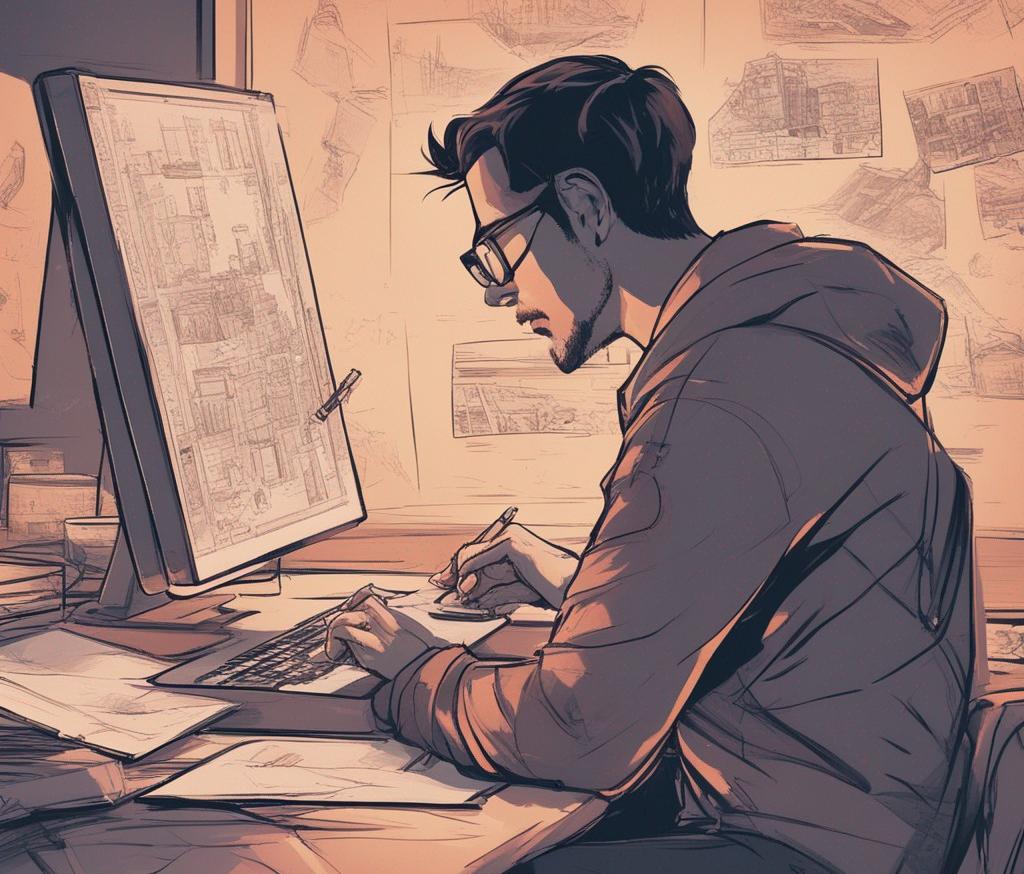How to Succeed At Film Festivals as an Indie Filmmaker

Before you ascertain how to succeed at film festivals, the first step is to weave an engaging, passionate story. To create this captivating narrative, focus on the fundamental elements, like protagonists undergoing a transformational journey interspersed with conflicts and resolution. Don't overlook plot twists as they can infuse an element of surprise into the storyline. Remember, a good story is the backbone of any successful film and the initial step for any indie filmmaker trying to make their mark at film festivals. It's essential to master these storytelling ingredients and blend them in a way that resonates with your audience, making them invest in your narrative emotionally and mentally.
Raising the Necessary Budget for Your Film

Finding the necessary financial resources for your movie project is one of the initial and most critical steps on the path to learning how to succeed at film festivals. There are multiple ways to fundraise and get your financial needs covered. Look into options such as crowdfunding platforms. For instance, Kickstarter and Indiegogo have been fantastic launching pads for numerous successful indie films. Additionally, you can apply for film grant opportunities, or try to catch the interest of private investors or production companies. For example, Jordan Peele's breakout hit "Get Out" was financed by indie studio Blumhouse Productions, demonstrating that independent doesn't necessarily mean doing it all alone.
Taking care of finances isn't just about fundraising, though. Another equally important part is astute budget management. After all, exceeding your budget can cause significant problems in the filmmaking process, so it's crucial to monitor your costs and keep them as closely aligned with your budget as possible. Stay realistic about your expectations, costs, and always prepare for unpredicted expenses. A prime example for budget management would be Robert Rodriguez's breakout film "El Mariachi." Produced on a shoestring budget of just $7,000, the film demonstrated that creative problem-solving could overcome financial limitations, making it a staple of indie filmmaking success stories.
Assembling Your Film Crew and Cast

When it comes to succeeding at film festivals as an indie filmmaker, assembling your film crew and cast is an essential step that requires careful strategy. One of the key elements to consider is having a balanced team comprising both seasoned professionals and up-and-coming talents. Leveraging the expertise of experienced professionals helps ensure technical brilliance. At the same time, offering opportunities to budding talents can be cost-effective and bring a breath of fresh perspective to your project. For instance, instead of hiring a high-profile cinematographer who's worked on big-budget projects, scope out talented film school graduates who are looking to make their mark and have a fresh understanding of contemporary cinema.
Equally important is cultivating a positive working environment that invigorates a spirit of cooperation and mutual respect. A film set is like a machine; if one component malfunctions, it affects the overall output. Hence the importance of chemistry among your team cannot be overstated. You want people who can genuinely connect with each other, communicate effectively, and work harmoniously to actualize the shared vision. This kind of synergy is especially crucial when it comes to the cast. For example, if your leading actors share a natural rapport off-screen, that bond tends to translate on-screen, making their performances more believable and engaging.
Post with Perfection: Making the Final Cut

The importance of post-production, specifically the editing process, in storytelling cannot be overstated. The final cut can, and indeed often does, make or break the film. This is the stage where all the different elements come together to communicate your narrative effectively to the audience. An unedited film is raw, filled with footage that, while valuable in its own way, needs a certain finesse to bring its message to the forefront.
It's during this post-production phase that the exploration of various editing techniques comes into play. Techniques such as cross-cutting or match-cutting, sound transitioning, or even the use of graphic overlays can not only enhance your narrative but also add depth to it. For example, Peter Jackson, the acclaimed director of 'The Lord of the Rings' trilogy used a variety of editing techniques to transform an epic fantasy novel into three Oscar-winning films. It was in his skillful editing that we saw a diverse story unfold smoothly on screen.
Yet, as an indie filmmaker, you may lack the experience or expertise to carry out an effective editing process. This is where bringing on board a professional editor can be pivotal. A seasoned editor not only offers an aesthetic advantage but also streamlines the narrative flow, making your film more engaging. For instance, the editor Walter Murch has made significant contributions to films like "The Godfather" and "Apocalypse Now" by enhancing their narratives through his cutting-edge editing. So, remember, 'how to succeed at film festivals' isn't just about filming an engaging story but also ensuring it is meticulously edited.
Expert Tips on How to Succeed at Film Festivals

Selecting the right film festival that aligns with your unique style or genre is a key step in succeeding in the indie film community. This approach ensures your project is being viewed by an audience that appreciates and understands the message of your piece, thereby increasing the chance of success. For example, a dark, mystery thriller might flourish at the Sundance Film Festival, which has a history of showcasing and honoring such genres.
Developing professional relationships by networking with fellow filmmakers and industry professionals at these events can also open doors to significant opportunities. Perhaps meeting the right person at a festival could lead to a partnership on your next project, or getting connected with a well-liked distributor who understands your vision. Networking isn't just about handing out business cards - it's about creating meaningful relationships based on a shared passion for film.
Lastly, think of your film as a brand that needs successful marketing. The film festival environment is highly competitive and often saturated with talent, which is why standing out is crucial. From designing compelling promotional materials to creating an engaging social media presence, the aim should be to develop a buzz around your film. An example is the film, "The Blair Witch Project", which used unique, mysterious marketing techniques that led to its incredible success at the Sundance Film Festival. The masterminds behind the film created a website with a fake "Blair Witch" mythology and spread rumors about the film's eerie backstory, creating anticipation and intrigue before its premiere.
Common Mistakes to Avoid as an Indie Filmmaker

Venturing into the world of indie filmmaking often takes filmmakers down a path filled with common pitfalls that could be easily avoided with well-informed caution. One such common mistake that can be detrimental to the success of a film is the overspending on unnecessary equipment. While high-quality gear can enhance the production value, a compelling story and skilful execution are what matter the most. An unwise investment in expensive equipment can devour a large part of your budget that could be better allocated elsewhere. For instance, spare that part of the budget for enhancing the post-production process which is unarguably a critical stage in filmmaking.
A major faux pas many indie filmmakers commit is neglecting the post-production process due to a lack of resources or time. Ignoring the post-production process is more or less like leaving a novel unpublished after writing it. This stage has the power to enhance your film’s visual storytelling, add depth, rectify shooting errors, and even save a bad film. Investing a significant amount of resources whether it be time, money, or manpower into quality editing, sound design, color grading, and other post-production aspects can dramatically impact the overall quality and reception of your film. In fact, many acclaimed filmmakers attribute their success at film festivals to on-point post-production. The trick of how to succeed at film festivals ultimately lies in striking the right balance, and side-stepping these common missteps.
Finding and Using Resources for Indie Filmmakers

Indie filmmakers have a wide range of resources at their disposal that can be exploited to their advantage. One such area of potential lies within free or inexpensive software and tools designed specifically for film-making. While budget constraints can often present barriers, filmmaking does not have to break the bank. Affordable software like Lightworks or HitFilm Express provide editing capabilities, while Celtx offers scriptwriting solutions. These tools can greatly aid filmmakers who are just starting out in the industry.
Film communities also serve as invaluable resources, acting as hubs where ideas can be exchanged and potential collaborations can be forged. Many online forums and social media groups provide platforms where indie filmmakers can interact, learn, and network with their contemporaries. Additionally, filmmakers must realize the vital role of constantly learning and staying updated with the latest trends and emerging technologies in filmmaking. Online educational content such as courses on platforms like Coursera or free content on YouTube can provide much-needed insight and keep one abreast with the industry. The key is continual learning, networking, and exploring the wide range of resources available to succeed at film festivals.
Inspirational Stories of Indie Filmmakers

Reflecting on the experiences of successful indie filmmakers provides valuable insights. These talents, who were once in the very shoes you stand in, navigated the same challenges and experienced triumphant victories at film festivals. Their passionate tales serve as testaments to the power of engaging storytelling, budget management, team collaboration, effective editing, and intelligent festival engagement. One key takeaway from their journeys is to never overlook the importance of marketing your film efficiently. These individuals also made the common missteps of rallying unnecessary equipment and neglecting post-production—lessons to benefit you as a budding filmmaker. Lastly, their ability to utilize available resources and stay tuned with emerging trends in the industry was a game changer in their quest on how to succeed at film festivals. These stories, thus, offer an inspiration to persist and innovate, wrapped with the promise of potential success in the festival circuit.
